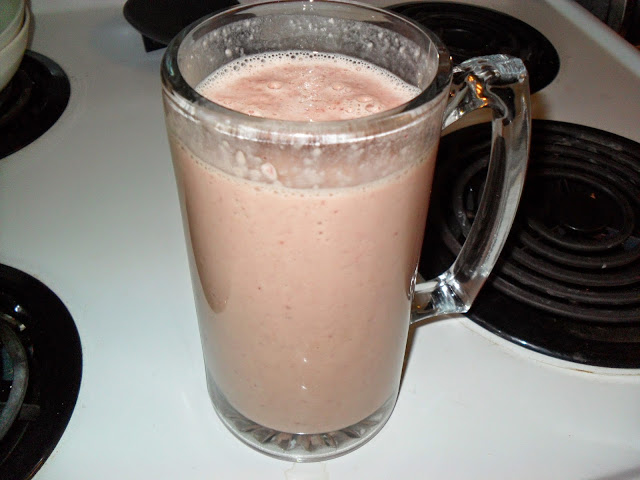My aim is to transform and build my body without the use of drugs. I generally go one step further and eschew all the thousands of various supplements that line the shelves of your local GNC or fill the pages of muscle magazines. I'm natural...but I'm not fanatic about it. I take vitamins; even though most studies seem to indicate it really doesn't do anything, I take them anyway more out of habit than anything else. I also take fish oil. I live in Kansas and don't have a whole lot of access to decent seafood, so it's a good way to get omegas into me. I regularly use Full Strength, though I consider this a meal and not a supplement.
I also have started using creatine. Let me tell you why.
Creatine is a co-enzyme in the formation of adenosine triphospate, which supplies energy to all the cells in the body, most particularly the skeletal muscle cells. It's been a long time since I sat in biology class and memorized the ATP cycle and I really didn't understand it all then. So just to make a long story short....creatine helps boost the ability of your muscles to do what muscles do.
Now, that doesn't mean it supercharges you like a can of spinach for Popeye. What it will do is make your workouts a little more powerful, move a bit more weight, do a few more reps....which in turn will make you see gains faster. You still have to work for the muscle. If you are fat and flabby and take creatine without doing any resistance training; you will remain flat and flabby, probably even more so. Creatine just helps you put forth a little more intensity.
But there are side effects... and it would be irresponsible of me not to warn you about them.
- It naturally boosts testosterone when taken in conjunction with resistance training. Testosterone is something that starts to fade in men after age 30. Exercise and diet are a big help in slowing down or reversing this trend. Adding creatine in the mix helps.
- It improves neurological function; ie, memory. Another body organ that starts to decline the older guys get. Creatine seems to have positive effects in keeping you sharp, focused, and productive.
- Enhances recovery. One aspect of having an aging body is that it doesn't bounce back from intense workouts like it did in your twenties. Creatine helps cut the time needed for the muscles to heal to you can go at them again.
- May reduce age related muscle loss.
- And the biggest benefit (for me anyway) is the creatine improves glucose tolerance.
I've searched high and low for any adverse effects of creatine and I have found none. Zip. Nadda. There is a lot of anecdotal "heard it from a friend of a friend evidence" that says creatine causes bloating and stomach upset. I tend to think it is because it is not prepared properly or they are using a crap product. There is also the warnings that it may be harmful to your kidneys, or liver, or some other organ...but there is not one study backing those warnings. Not one. In fact, all the studies (and there are a shitload of them going back decades) that indicate properly used creatine is risk free.
The best, easiest, and cheapest creatine to get is what they call plain old creatine monohydrate powder. If you look at the ingredient label, that should be the only thing listed. The monohydrate is the one that has all the mountains of research behind it. Try to find a product that is made with Creapure. That is supposedly the gold standard in creatine. Since creatine is fairly cheap, a lot of companies get all creative with different formulations and gimmicks. Shun all of them; it's usually done only to jack up the cost and it makes the product less effective. Try to find what is called micronized creatine. That just means it is chopped up finer so that it will dissolve more easily in water and be more readily absorbed into your body. This also might lessen the problem of any bloating or stomach discomfort that I mentioned earlier.
So....to recap.....here is a product. It's cheap. It's effective in helping to build muscle. Has a load of great side effects to boot. Is much, much safer than most of the processed foods offered as a daily diet for most Americans.
Sounds like a no brainer.
















